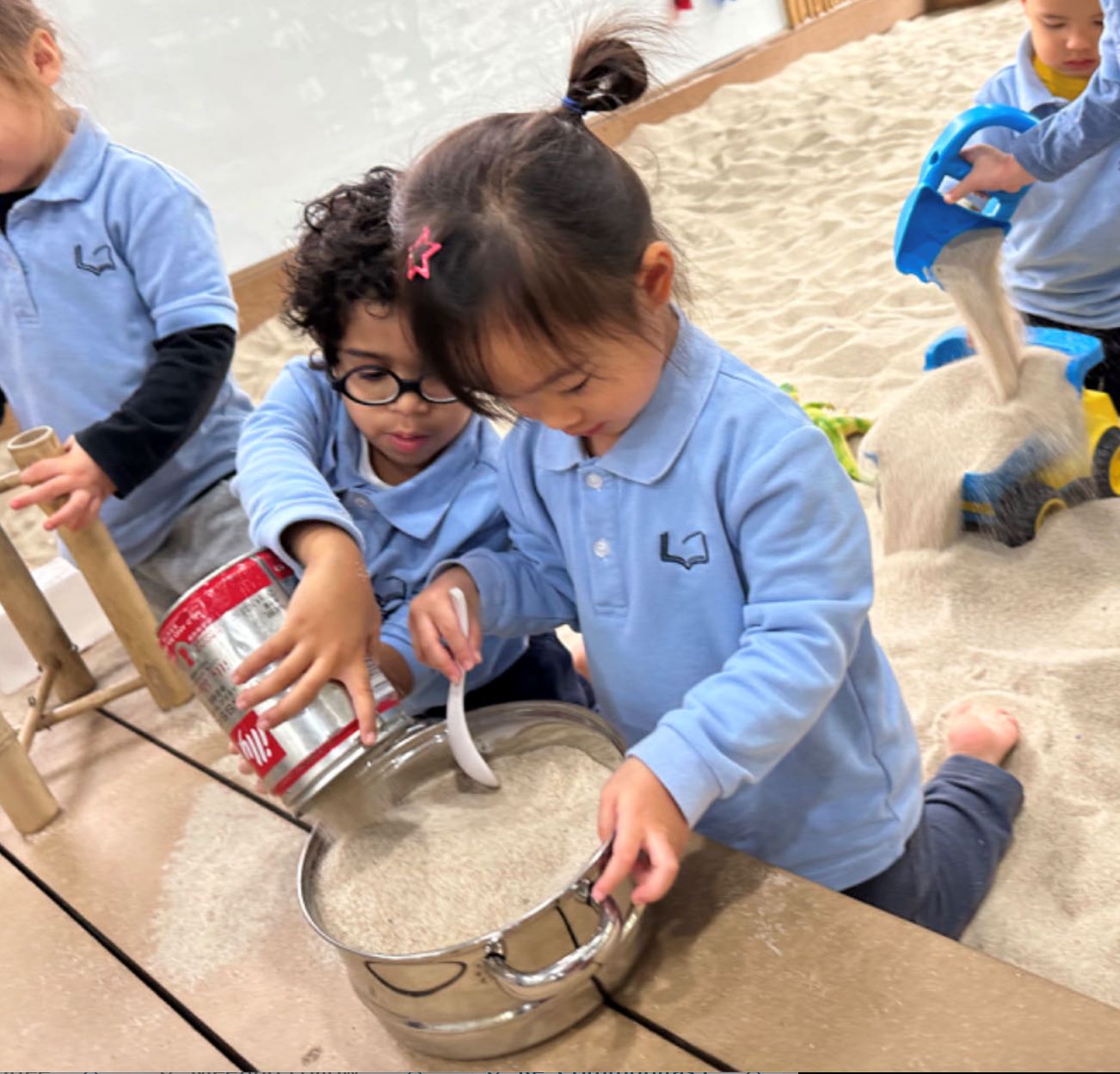Estimated Reading Time: 2-3 Minutes
As adults, we often marvel at the boundless imagination of children. Between the ages of two and six, youngsters possess a remarkable ability to transform living rooms into jungles, cardboard boxes into spaceships, and themselves into superheroes or mythical creatures.
This is the world of dramatic play, a stage on which childhood creativity knows no bounds. But dramatic play is more than just fun and games; it is a critical component in developing symbolic expression and a cornerstone of early childhood development.

Symbolic expression is the ability to use symbols – words, numbers, images, or objects – to represent something else. This skill is essential for language development, reading, writing, and mathematics.
Dramatic play naturally cultivates symbolic expression as children begin to understand that one thing can stand for another; a stick becomes a sword, a towel transforms into a cape, and spoken words can represent actions and emotions.

Through dramatic play, children learn to navigate the world of symbols. They start to grasp that written words are symbols for objects, actions, and concepts.
As they engage in storytelling and role-playing, they practice organizing their thoughts and using language to convey complex ideas. This skill is crucial for later academic tasks like reading comprehension and essay writing.

Dramatic play provides a safe and nurturing environment for children to explore emotions and social roles.
By stepping into different characters, children experiment with various emotional states and social interactions. They learn empathy by "walking in someone else's shoes," which is essential for building social skills and emotional intelligence.
This exploration of feelings through play helps children learn to express themselves symbolically through language and behavior, which is vital for healthy emotional development.

The benefits of dramatic play extend to problem-solving and critical thinking skills as well. When children pretend, they encounter imaginary scenarios that often require creative solutions.
They must think abstractly and symbolically to resolve these problems, whether it's building a fort to protect against dragons or deciding how to share resources in a make-believe family.
These skills translate to real-world situations where symbolic and abstract thinking is required.
Parents can support and enrich their children’s dramatic play by providing a variety of materials and opportunities for imaginative play. Costumes, props, and open-ended toys like blocks can stimulate creativity.
However, it is equally important to allow children the freedom to use everyday items in unconventional ways, reinforcing the idea that anything can symbolize something else.

Adults are encouraged to engage with their children during dramatic play without dominating the narrative.
By participating as co-creators in the fantasy world, parents validate their children’s ideas and encourage further symbolic thinking.
Asking open-ended questions and introducing new vocabulary during play also expands children’s language skills and conceptual understanding.
In conclusion, dramatic play is a vital activity for young children, not just as a form of entertainment, but as a crucial tool for developing symbolic expression. It lays the foundation for language and literacy, fosters emotional and social intelligence, and hones critical thinking and problem-solving skills.
By nurturing our children's imaginative play, we are giving them the keys to unlock the symbols that will help them interpret and engage with the world around them.
As parents, we have the privilege of being both audience and actors in the wondrous unfolding drama of our children’s development.
Discover a global standard of early childhood education. Discover SCIS.
Register for the SCIS Hongqiao ECE Campus Open House – March 29.

Article author Heather Knight is Early Childhood Education Principal at SCIS Hongqiao.
[All images courtesy of SCIS]






















0 User Comments